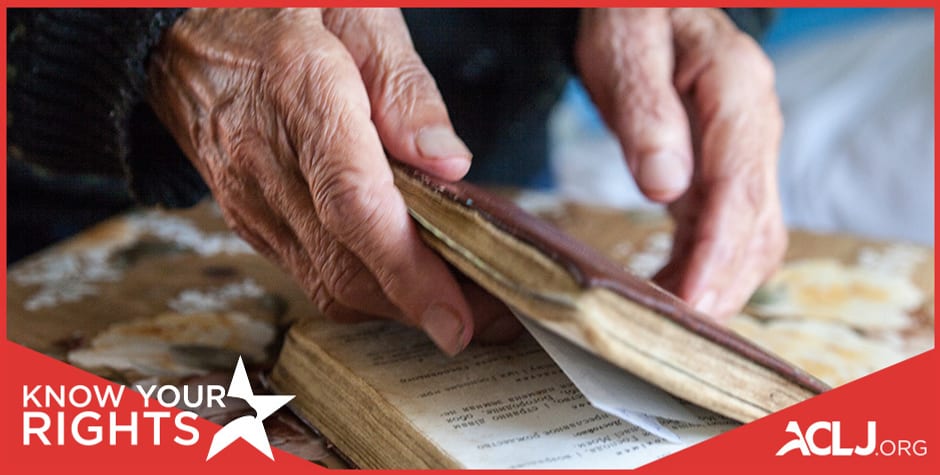Know Your Rights: Senior Living Centers and Other Housing Facilities Cannot Discriminate Based on Religion
Picture this: You work most of your life, you attend church regularly, you raise your children to follow God, and then you start thinking about your golden years. This is it! Your years of hard work have paid off. You can now enjoy the fruit of all those years of sacrifice. Perhaps one day you decide to move into a senior living community.
As you settle into your new community, you decide (for example) to host a weekly Bible study with other residents in the community room that is also used by residents for a variety of secular purposes. You follow all the proper steps to start the Bible study and are excited at the prospect of meeting fellow residents. Come to find out, there is one major problem . . .
The senior housing community informs you that the Bible study is not in compliance with its policies, even claiming federal law bans the Bible study because the housing community receives federal funds. How can this be? If the senior housing community allows secular gatherings in the community room, shouldn’t Bible studies led by residents be permitted as well? The short answer to this question, depending on the specific facts, is YES. Housing facilities cannot discriminate based on religion! Unfortunately, many senior living centers and other housing facilities just don’t understand the law.
To this point, the ACLJ has successfully assisted several clients who were targeted specifically because of their religion (see here, here, and here, for example). The ACLJ has also written a memorandum (“memo”) that provides a general overview of the law specific to housing discrimination based on religion.
In our memo, for example, we explain that the First Amendment to the United States Constitution prohibits the government from making any law prohibiting the free exercise of religion or abridging the freedom of speech. We also point out that the Fair Housing Act (FHA) protects the free exercise of religion in the private and public housing markets and makes it unlawful “[t]o discriminate against any person in the terms, conditions, or privileges of sale or rental of a dwelling, or in the provision of services or facilities in connection therewith, because of . . . religion . . . .” This does not prohibit Bible studies. Just the opposite, it protects them. A Bible study, as such, cannot be discriminated against by a housing complex, even one that receives federal funds.
We further note that the United States Department of Justice has made clear that the FHA’s prohibition on religious discrimination “covers instances of overt discrimination against members of a particular religion as well [as] less direct actions . . . .” In the context of housing discrimination, this means:
No one may be discriminated against in the sale, rental or enjoyment of housing because of their religious beliefs. This includes equal access to all the benefits of housing: someone could not, for example, be excluded from reserving a common room for a prayer meeting when the room may be reserved for various comparable secular uses.
As we discuss in our memo, HUD Regulations likewise prohibit religious discrimination. 24 CFR § 100.65(a) states, “It shall be unlawful, because of . . . religion . . . to impose different terms, conditions or privileges relating to the sale or rental of a dwelling or to deny or limit services or facilities in connection with the sale or rental of a dwelling.”
In short, the FHA prohibits apartment complexes, condominiums, and other housing complexes from preventing residents or homeowners from engaging in private religious expression and from using common rooms for religious events or activities where non-religious events or activities are permitted.
Lastly, our memo explains that apartment complexes, condominiums, and other housing complexes are prohibited from inconsistently applying their rules and regulations if they detrimentally single out religious expression. Even inferences of discriminatory intent, as discussed in our memo, may rise to the level of unlawful religious discrimination.
Despite the fact that the FHA clearly prohibits religious discrimination in senior living facilities, residents of such facilities have been increasingly subject to religious discrimination. Because of this troubling trend, the ACLJ remains vigilant to ensure your constitutional rights are protected and has been providing assistance and legal representation, at no cost or charge, to people just like you for decades.
If your rights are being violated in this area, please contact us at ACLJ.org/HELP.
